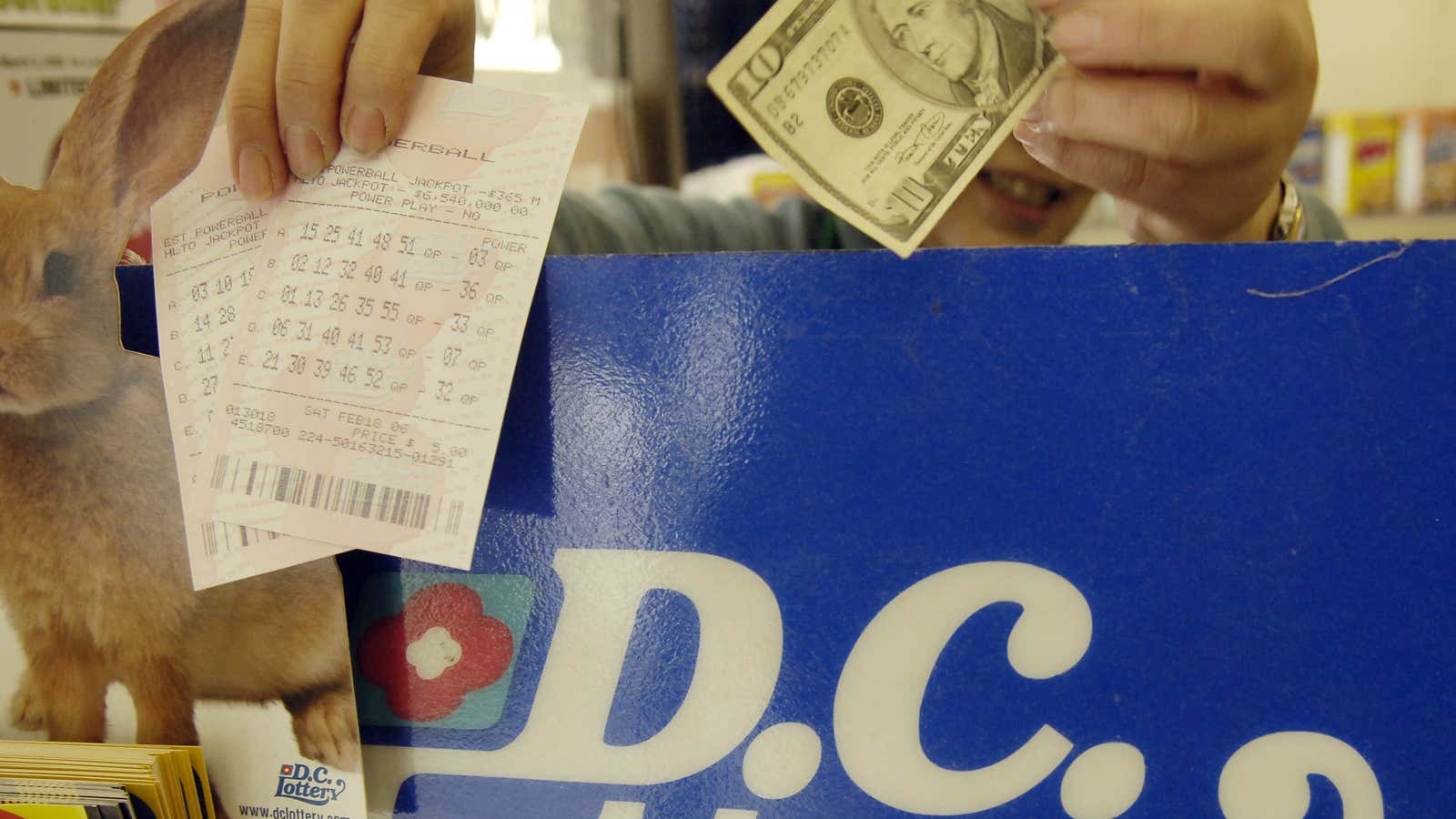There’s a major perk that comes with owning the gas stations and mini-marts where lottery tickets are sold in Washington, DC: At least three retailers have won significant prizes in the last eight years, including one ticket worth $1 million, making them three of the top five most frequent lottery winners in the District.
Local broadcaster WUSA9 discovered the unlikely winnings via a Freedom of Information request, and reported that “DC Lottery said it immediately launched an internal review” upon learning of its investigation.
Just how unlikely are the winnings? Dan Naiman, a statistics professor at Johns Hopkins University, told WUSA9 that the odds of three lottery retailers being among the top five winners was 1 in 10 billion, or ”around the chance of getting heads in 33 consecutive coin flips.”
One lottery retailer, Lounes Issaad, told WUSA9 his 27 winnings were just good luck. “Believe me I was playing, I was scratching a lot. I was addicted. Whatever I won, I always put back,” he said.
A DC Lottery spokesman said such frequent winnings are not necessarily evidence of criminal activity, and did not necessarily reflect the amount of money that each individual had wagered. DC Lottery did not immediately responded to Quartz’ request for comment.
This is not the first time lottery insiders have been suspected of fixing the results. Earlier this year, a former head of computer security at the US Multi-State Lottery Association was found guilty of infecting the number generating computers with “rootkit” software. He then bought a $13.4 million winning ticket.
Regular lottery players, with no insider connection, have also been able to find holes in the seemingly random lottery card system. One statistician, Mohan Srivastava, discovered that when computers produce tic-tac-toe scratch lottery cards, they print visible numbers on the card that can be used to predict, with 90% accuracy, which card is a winning ticket. He reported these flaws to the authorities in 2003, but told Wired he was able to still to use algorithms to beat the lottery in 2011.
Meanwhile, Joan Grinther, who won four multi-million dollar lottery tickets and was called “the luckiest woman in the world,” had her luck called into question after it was discovered she has a statistics PhD from Stanford University. Grinther has never been formally charged with any wrongdoing, but the odds of her many winnings were calculated at one in eighteen septillion. To put this in perspective, wrote Nathaniel Rich in Harper’s, there are only one septillion stars in the universe, and one septillion grains of sand on Earth.
It sounds too impossibly lucky to be feasible. But who knows, perhaps DC’s lottery retailers are just an extremely blessed bunch.




